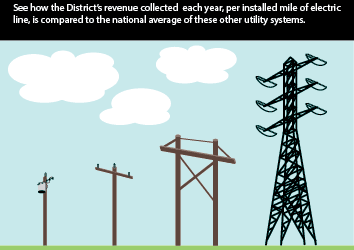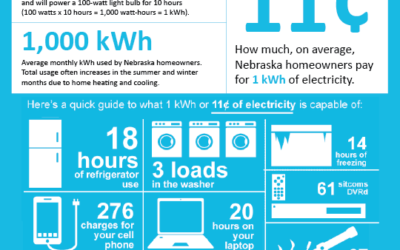
Go electric and get a 20% incentive!
Gasless, but not gutless. Quiet, but not shy. This is not your grandfather’s battery-powered mower. Advances in battery technology have come a long way in recent years. More power is now being packed into batteries so your mower can speedily deliver a knock-out punch to your lawn. Maybe it is time to consider upgrading your conventional, gas-burning mower with a new electric or battery-powered option.
LOWER ENERGY COSTS
- Depending on how often you mow, electric-powered mowers will cost about $15 per year in electricity. Gas mowers use approximately $30 of gasoline.
LESS MAINTENANCE
- No sparkplugs, air filters, fuel filters or oil change.
QUIETER OPERATION
- Electric mowers create up to 75 decibels of sound, which is similar to a washing machine. Gasoline mowers can exceed 95 decibels, which is comparable to a motorcycle on the highway.
ECO-FRIENDLY
- No toxic gas emissions including nitrogen oxides, airborne particulates, carbon monoxide and carbon dioxide.
FOLLOW THESE EASY STEPS:
- Obtain an EnergyWise application form.
- Purchase your choice of a new battery-powered or corded electric mower. Chargers and additional battery purchases are available for the incentive at the time of the initial mower purchase. However, taxes, delivery/shipping and set up costs are not.
- Complete the application and return it to your local utility with a copy of proof of purchase.
Mowers must be new and purchased on or after January 1, 2022. They cannot be used, previously owned or factory reconditioned. Riding, walk-behind and robotic mowers are eligible for the incentive.
OTHER NEWS
BETWEEN THE LINES: Public Power Month
By Gwen Kautz, General Manager gkautz at dawsonpower.com 308-324-2386 The folks at Dawson Public Power District work hard to keep the lights on and get them back on quickly when there are problems. There is another side of the business though, where we work equally...
WATT’S UP? A kilowatt-hour defined
1 kWh = 1,000 watt-hours 1 kilowatt-hour (kWh) of energy is equal to 1,000 watt-hours and will power and 100-watt light bulb for 10 hours (100 watts x 10 hours = 1,000 watt-hours = 1 kWh). 1,000 kWh The average monthly kWh used by Nebraska homeowners. Total usage...
Just ‘kidding’ around: Goat yoga offers laughter in the pasture
By Chelsea Gengenbach, Communications Specialist Goat yoga. If these words are leaving you a bit perplexed, you’re in good company. I had the chance to observe the Great Plains Goat Yoga Gathering in rural Buffalo County, and the echoes of laughter in the pasture have...



